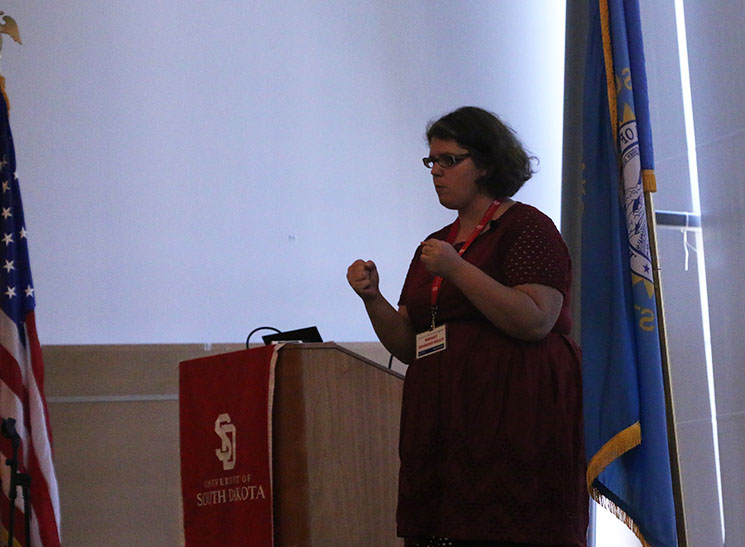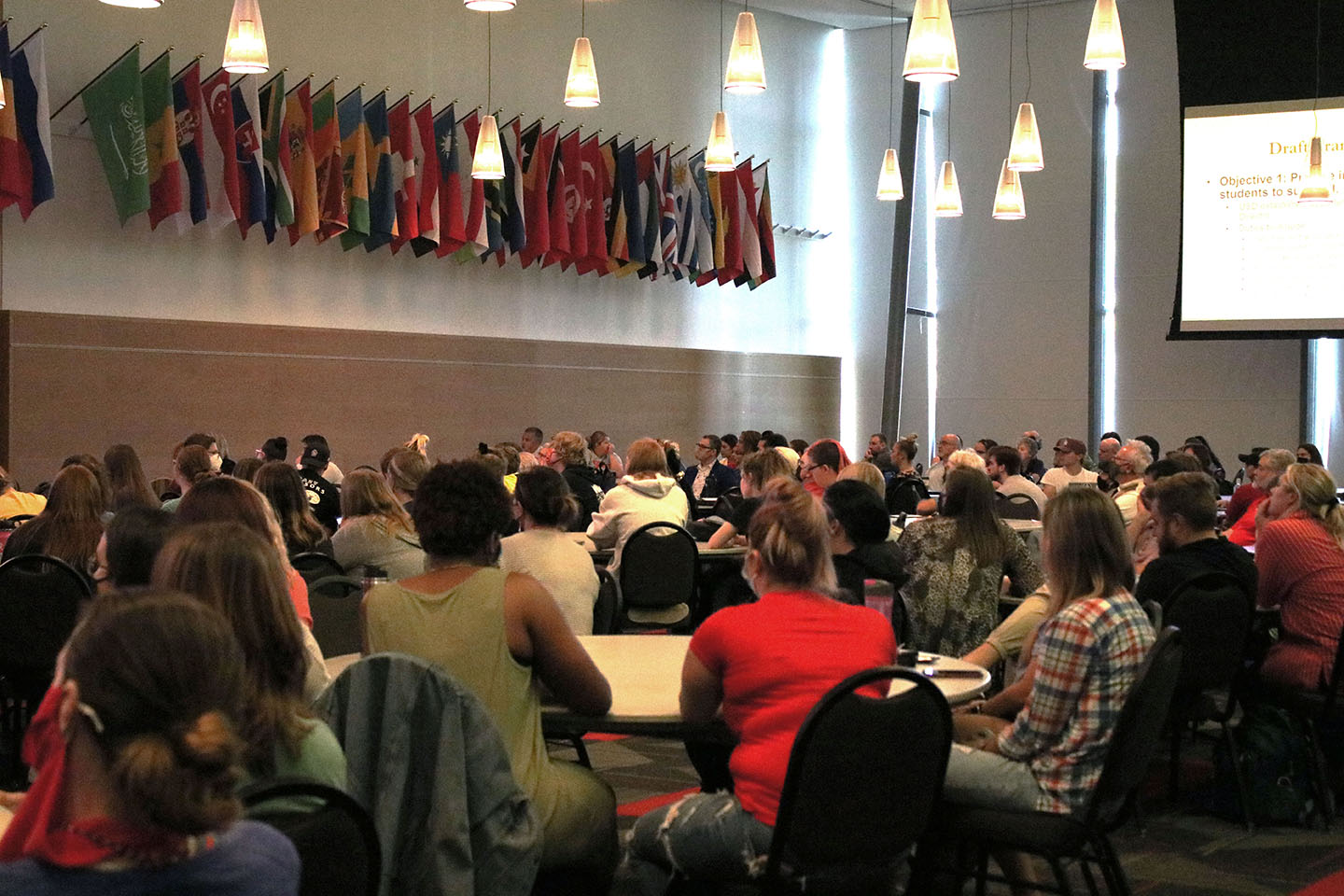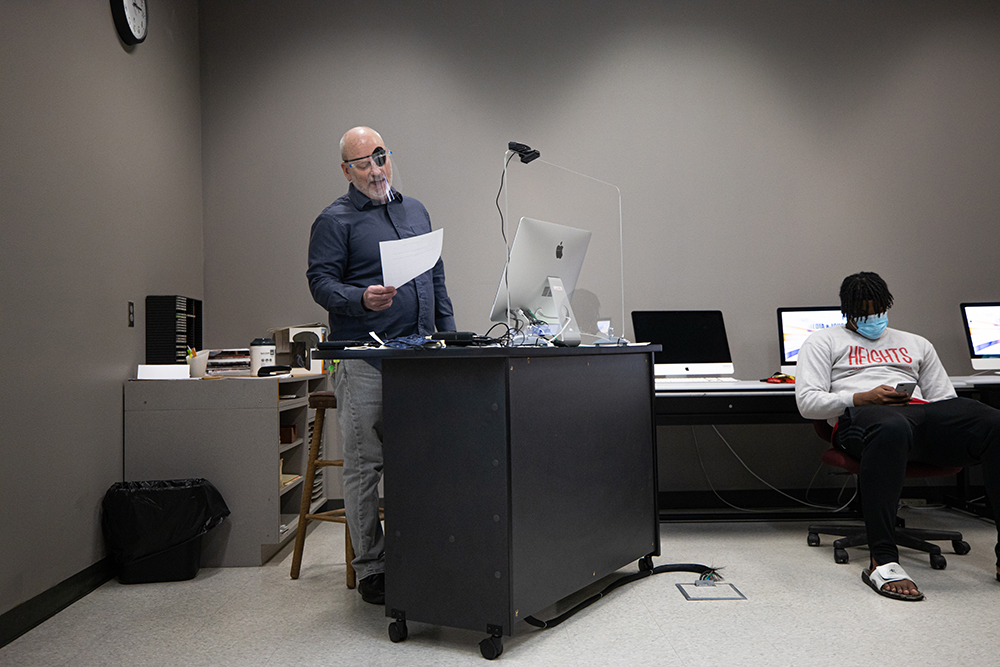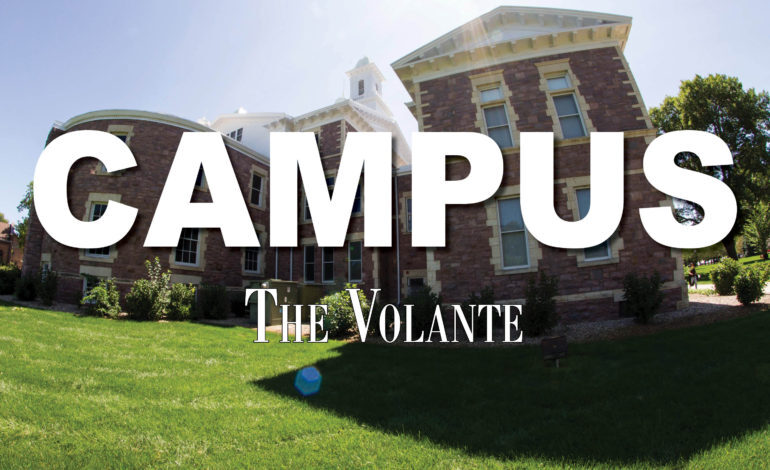
Presenter discusses sexual assault prevention
By Chrystina Anderson
Sexual assault happens to one in four women and one in six men in their lifetime. More than half of all rapes happen to females under the age of 18.
Bridget Diamond-Welch, a University of South Dakota criminal justice professor, informed delegates using these facts during a presentation
Friday afternoon.
Sexual assault is any type of sexual contact or behavior that occurs without the consent of
the person.
Diamond-Welch sat down with the Sacajawea Scroll for a Q&A about the class. Here are her responses:
Chrystina Anderson: What is the biggest misconception about sexual assault?
Diamond-Welch: “Even if someone doesn’t say no, it still doesn’t mean yes.”
CA: What is the most important thing to know about sexual assault in a relationship?
DW: “If there is a power imbalance, it’s not OK. If one or the other misuses or abuses the situation, it’s still not OK. Manipulation is, ‘If you don’t do this, I’m not going to love anymore.’”
CA: What is the biggest challenge about having a
relationship today?
DW: “I think the biggest problem is that society has certain expectations of men and women. What it means to be in a relationship is different. You have to make a change if you want it to be healthy.”
CA: How can we fix the problems we are having with
sexual assaults?
DW: “First off, quit victim blaming. Also, talk about it. Have sessions to inform people. Spread the word on social media. And most importantly, speak up when you see something that isn’t right.”
CA: What does a healthy relationship look like?
DW: “There is communication, they are open to each other, they have frank conversations and they have respect for each other and their feelings.”
CA: For someone who was sexually assaulted, what should
they do?
DW: “First, they have to consider what they need, even if it’s go to a friend or just be alone. Then, they are encouraged to take action. Go to a community-based counselor or someone you trust.”
CA: What inspired you to talk about this topic?
DW: “I was asked to present here, and I want 17 year-olds to know what consent means and looks like. Also, they should know how and when to say no. And they should know what to do in case something
does happen.”



